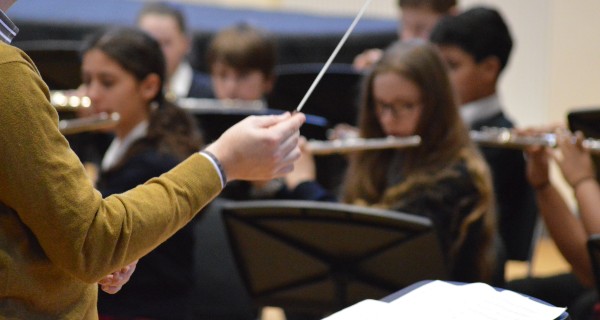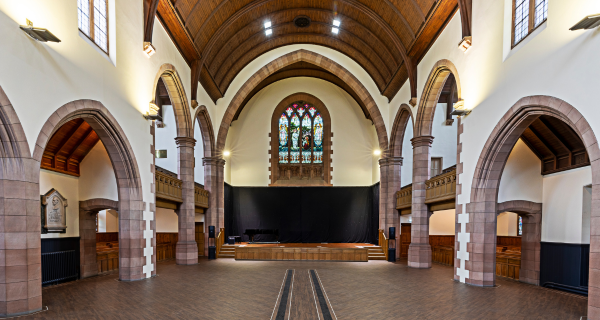Across the world, music is playing a vital role during lockdown. It has united communities on Thursday nights, as neighbours play for key workers on instruments of every kind and it has offered moments of calm as people steal away from family members to practice. At ESMS it has also helped to lift our spirits as young and old came together for our virtual singalongs.
Committing your child to music lessons can be a difficult decision. The pressure to practice, the extra expense and of course getting your child on-board with the idea. But I do believe that it is a commitment worth making, if you possibly can. It is increasingly recognised that learning to play an instrument can have a profound effect on your child’s development and learning.
Neuroscientists have described playing a musical instrument as the brain’s equivalent of a full workout. It requires you to read the music, practice your fine motor skills, hear and store information and exercise memory. Practising these skills can induce a range of long-lasting changes to the brain.
Dr Anita Collins is an award-winning researcher of brain development and music. Her work shows that playing an instrument engages most areas of the brain and develops the bridge between the left and right sides of the brain, increasing the speed of messages travelling between both sides and the diversity of routes used. All of this helps us to problem-solve more effectively and creatively. It isn’t surprising that musicians often have more advanced levels of planning, strategising and strong attention to detail.
Playing an instrument can also help with language and reasoning. The University of Zurich found that learning about tone and scores helps you to store audio information which makes it easier to learn foreign languages and identifying what other people are feeling from the tone of their voices, such as empathy and disappointment.
There is even evidence to show that musical instruments can boost academic performance. A study by the University of Columbia in Canada was published in Forbes magazine last year. It found that students who took music lessons in high school performed better in subjects such as English, Science, and Maths.
“Learning to play a musical instrument and playing in an ensemble is very demanding," said Martin Guhn, one of the researchers involved with the study, "A student has to learn to read music notation, develop eye-hand-mind coordination, develop keen listening skills, develop team skills for playing in an ensemble and develop discipline to practice.”
Even when performing with sheet music, student musicians are constantly using their memory to perform. This skill is something that will serve pupils well beyond school.
Although research suggests that the earlier you start, the stronger the developmental changes, it is never too late. I have decided to use the lockdown period to try to learn the cello. It is slow progress but I am loving the new challenge. There are over 1200 pupils involved in music at ESMS so a bit of help strengthening those neuro functions is probably a good thing!
With thanks to Mr Chenery. If you have any questions regarding the music department here at ESMS, please do not hesitate to get in touch here.






